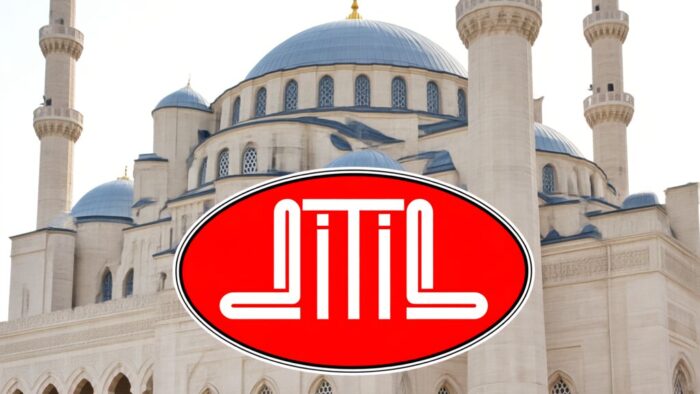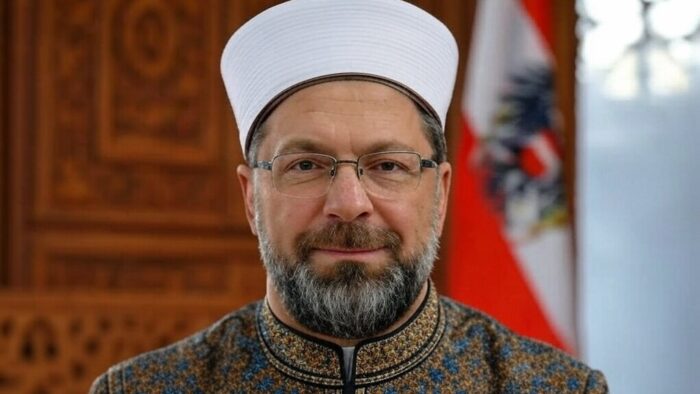Turkey is expanding its political influence across the Western Balkans by investing in infrastructure and religious landmark buildings, with mosque construction serving as part of Ankara’s geopolitical agenda to project soft power while furthering economic, political, and military interests. On 6 July 2025, Deutsche Welle reported that Turkey’s religious authority Diyanet funded the Namazgah mosque in Tirana with around €30 million, securing influence on the mosque’s board and appointing a Turkish imam, demonstrating how Ankara acts as a regional power. The article begins:
With a height of 50 meters (160 feet) and space for around 8,000 worshippers, the Namazgah mosque in Albania’s capital Tirana is one of the most impressive Islamic places of worship in the Western Balkans. It was partly funded with around €30 million ($34 million) by the Turkish religious authority Diyanet. Its architectural inspiration is the Blue Mosque in Istanbul. In October 2024, after a construction period of around ten years, Turkish President Recep Tayyip Erdogan came to Tirana for the inauguration of the mosque. While there, he signed an agreement to cooperate with Albania on agriculture and education, and donated a number of Turkish-made drones to the country. Diyanet also secured influence on the board of the new mosque and a Turkish imam was appointed, which was cause for dismay among Albanians.
Read more: https://www.dw.com/en/turkey-ramps-up-political-influence-in-the-western-balkans/a‑73113894
Key Points
- Social scientist Nathalie Clayer explains that Turkey’s construction of mosques as a means of projecting soft power is closely linked to furthering economic, political, and military interests across the Western Balkans region.
- Turkey overtook Saudi Arabia as the leading nation funding new mosques in the Western Balkans following Erdogan’s rise to power in 2002 and 2003, with Diyanet securing influence on mosque boards and appointing Turkish imams.
- Cultural anthropology expert Rebecca Bryant calls Turkey’s infrastructure policy infrastructure imperialism, with Turkish investors constructing railroad lines, ports, hotels, and shopping districts from Sarajevo to Georgia and Kazakhstan.
- Erdogan uses rhetoric about a common destiny linking Turkey with these countries, with mega-projects intended to signal that Turkey represents the future and is more modern than the West, according to Bryant’s analysis.
Turkey Religion Influence Operations: How Diyanet Projects Power Through Mosques Abroad
Turkey employs an extensive religious infrastructure to project influence across Western democracies, with the state-controlled Directorate of Religious Affairs (Diyanet) serving as the primary vehicle. The Diyanet was founded in 1924 to monopolize control of Sunni Islam under the state, drafting weekly sermons delivered at all Turkish mosques while employing imams as civil servants. This framework expanded internationally starting in the 1980s, when Turkey began managing mosques abroad and sending imams to promote Turkish Islam. After the Justice and Development Party (AKP) came to power in 2002, it quadrupled the Diyanet’s budget and installed sympathetic leadership, transforming what had been a secular institution into a megaphone for government positions.
The scope of Turkish religious influence operations has grown substantially in recent years. With a significant government budget, the Diyanet controls the content of imams’ speeches in thousands of mosques globally, functioning as a means for political, ideological, and security influence, particularly in regions with substantial Turkish immigrant populations. Nordic Monitor reports that the Diyanet has allocated $3.7 billion for 2025, surpassing the budgets of several key Turkish ministries, and aims to reach 2.1 million people abroad through its network of over 900 mosques in Germany alone and hundreds more across Europe and North America. Beyond Europe, the organization is intensifying efforts in the Balkans, Central Asia, and Africa, where it funds mosque construction, supports local religious education, and trains imams to promote Ankara’s interpretation of Islam.
The Turkish-Islamic Union for Religious Affairs (DITIB) exemplifies this transnational structure. The organization is linked to the Diyanet, which sends imams to DITIB mosques, with salaries paid by the Diyanet or local Turkish consulates. DITIB has embedded itself in European educational systems, with representatives holding seats on advisory boards of Islamic theology programs at German universities and cooperation between DITIB and state schools. Similarly, the Diyanet Center of America oversees numerous mosques in the United States, exemplifying Turkey’s efforts to influence Turkish-speaking populations and spread its political Islam agenda. Iran International notes that the budget for construction, maintenance, and programs of thousands of mosques affiliated with these centers is provided by the Turkish government, with missionaries and managers sent by the government receiving government salaries.
European governments have grown increasingly concerned about these operations. Germany’s domestic intelligence service identified Turkish influence operations as flanked by attempts to influence communities of Turkish origin, which can impact political decision-making processes in German society. Germany has cut funding to DITIB and sought to have imams educated locally to reduce foreign influence, while France has closed the Diyanet’s bank accounts and ended programs allowing other countries to send imams without French oversight. The Middle East Forum reports that in recent years, Turkish imams and mosques in Europe have come under investigation for espionage operations targeting critics and opponents of the Erdogan government, prompting many Western European countries to implement measures curbing foreign interference.
The reach extends to institutional coordination across Europe. The head of the Diyanet visited Belgium and met with politicians and NGO leaders, including the head of Belgium’s former official Muslim body, as part of a systematic outreach to Western European countries with significant Turkish communities. The Belgian Diyanet Foundation controls around 70 mosques in Belgium. At the same time, Turkish media reports indicate the Diyanet held a conference in Germany to establish a secretariat in Ankara that would oversee meetings of European Muslims and organize major gatherings every two years. Academic research from OpenEdition confirms that during the 1980s and 1990s, the Diyanet was the main tool of struggle against political Islam in Europe. Still, since the 2000s, as the same political Islam monopolized power inside Turkey, Diyanet discourse reversed, becoming the main megaphone of the ruling AKP in Europe as an identity and political tool.
External References:
— Nordic Monitor: Erdogan’s notorious religious authority eyes global expansion, aiming to reach 2.1 million people abroad in 2025
— Iran International: Turkey And Iran Use Religion For Influence Building In US And Europe
— OpenEdition: Transformation of the Turkish Diyanet both at Home and Abroad: Three Stages
Disclaimer:
The Global Influence Operations Report (GIOR) utilizes AI throughout the posting process, including the generation of summaries for news items, introductions, key points, and, often, the “context” section. We recommend verifying all information before use. Additionally, all images are generated using AI and are intended solely for illustrative purposes. While they represent the events or individuals discussed, they should not be interpreted as real-world photography.










